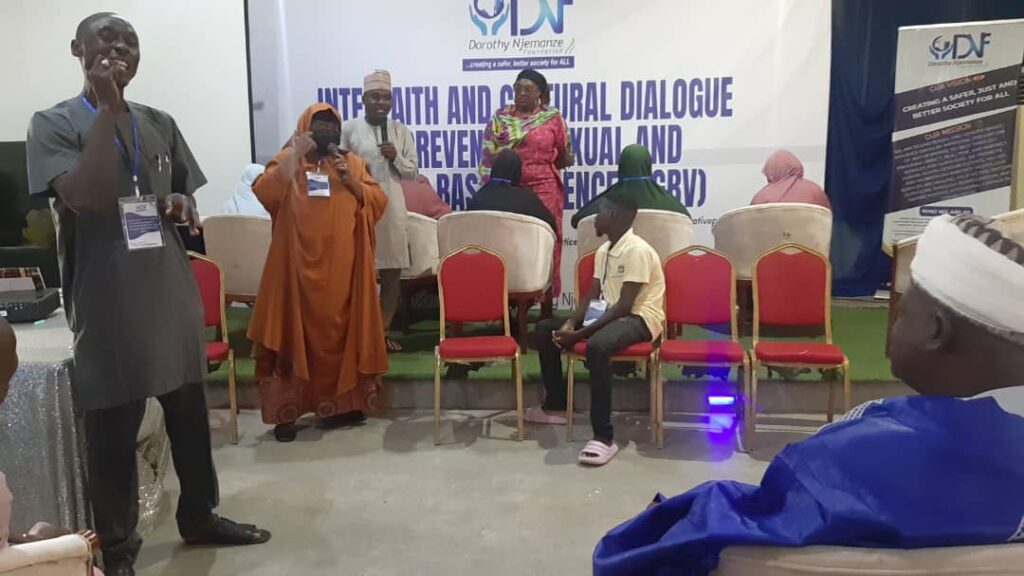The Executive Director of the Dorothy Njemanze Foundation (DNF), Dorothy Njemanze, has called on Nigerians to actively support the prevention of Sexual and Gender-Based Violence (SGBV) through sustained community engagement.
She made the call during an Interfaith and Cultural Leaders Dialogue on Preventing Sexual and Gender-Based Violence, held in Niger State. The event was organized by the Foundation with support from the Ford Foundation, and brought together religious and traditional leaders across the state.
Dorothy Njemanze, whose organization is comprised of survivors of gender-based violence, stressed the importance of involving faith-based and cultural institutions, as well as security agencies, in raising awareness and protecting survivors.
“Religious, traditional, and security leaders must use their platforms to speak out against SGBV, while ensuring survivors are shielded from stigma and humiliation,” she said.
She also noted that the Foundation continues to identify systemic gaps that need to be addressed by the state government to effectively tackle the menace.
Representing the Commissioner for Women Affairs and Social Development, Hajiya Titi Auta, the Director of Gender Affairs in Niger State, Azeezat Iliyasu Dako, expressed concern over the role some traditional leaders play in obstructing justice for victims.
“Interference by some traditional institutions often denies survivors the justice they deserve. This culture of silence and cover-up must be addressed,” she warned.
Religious leaders, including the Chief Imam of Chanchaga Central Mosque and representative of Jama’atu Nasril Islam, Mallam Abubakar Sadiq Yahaya, alongside the Secretary of the Christian Association of Nigeria (CAN), Niger State Chapter, Pastor Raphael Opawoye, jointly condemned sexual and gender-based violence, describing it as a clear violation of the teachings of both Islam and Christianity.
Traditional rulers from various emirates in the state who attended the session pledged to disseminate the key resolutions of the dialogue to their communities.
Some survivors of SGBV, including victims of domestic abuse and forced marriages, also shared their experiences at the event, appealing to stakeholders for stronger protection, support, and justice.

